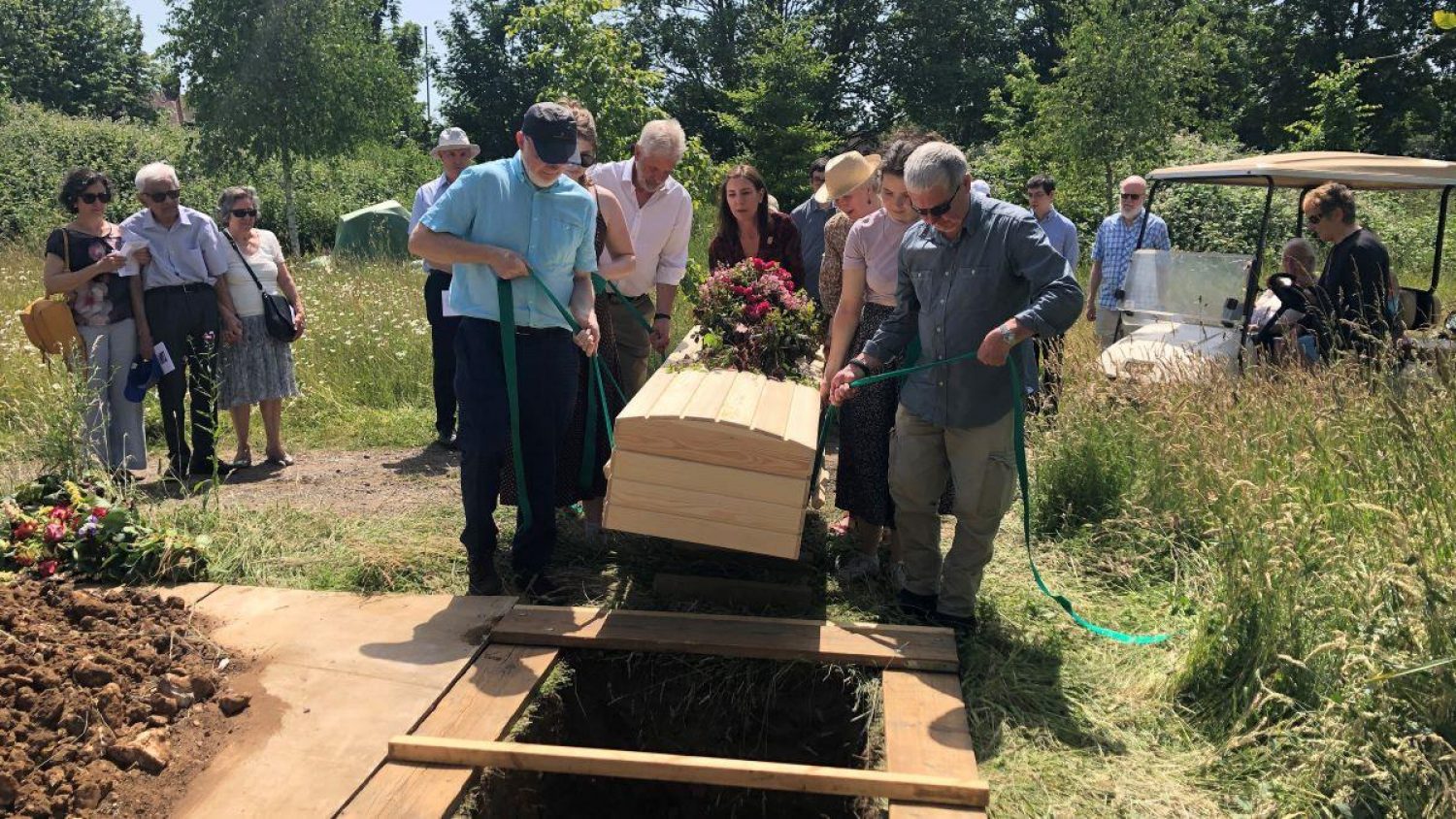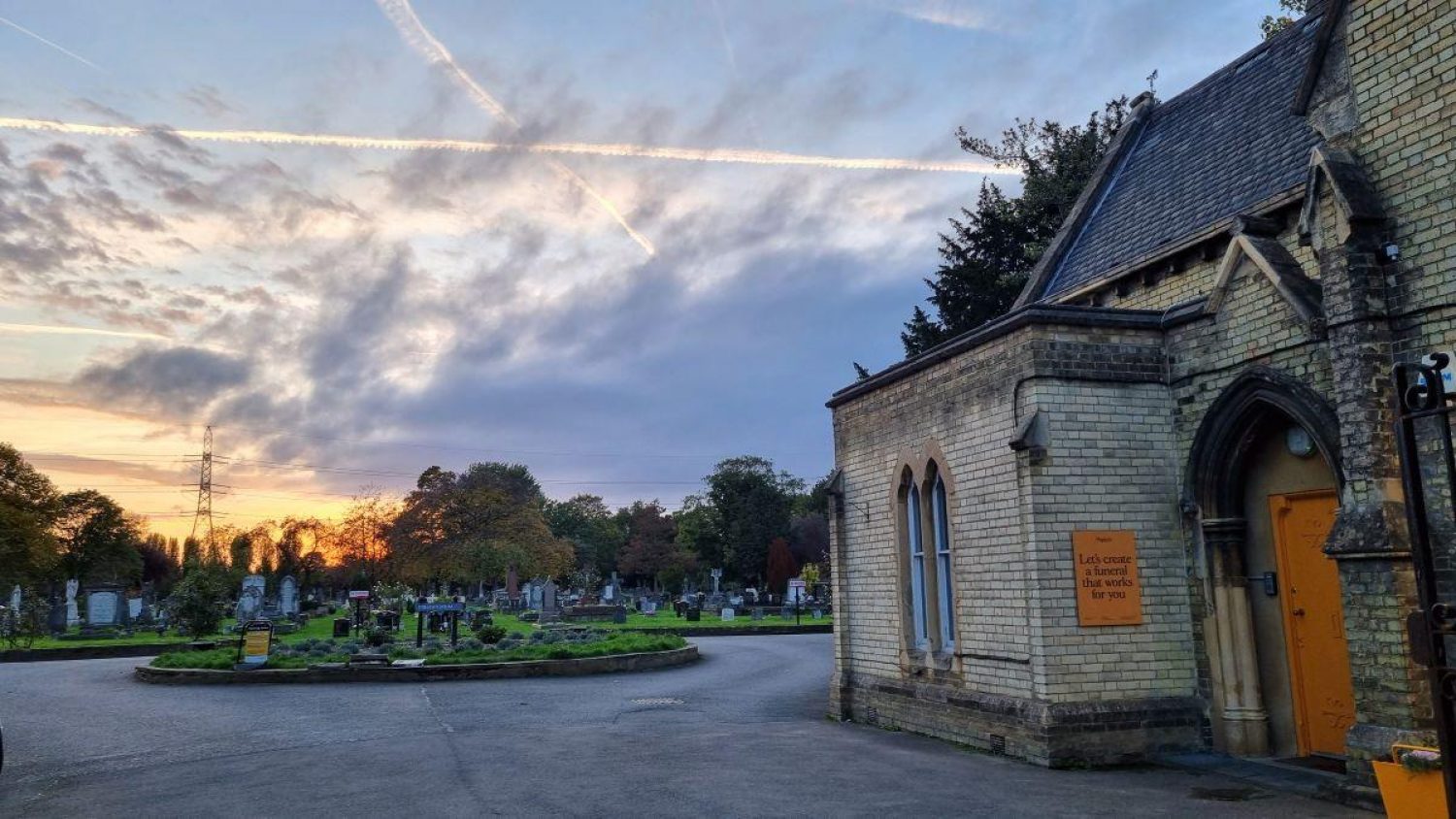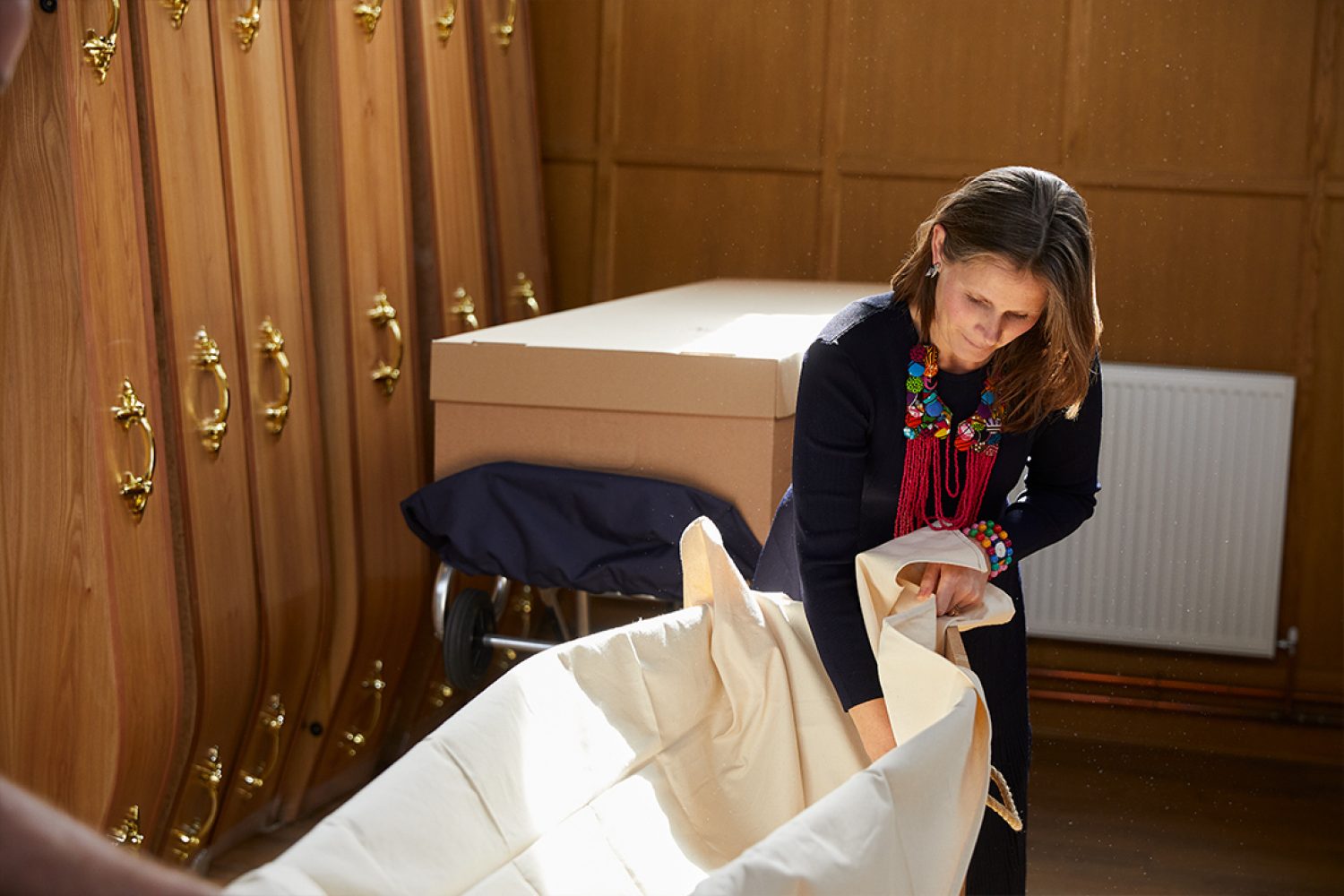Four minute read
Founder Poppy Mardall concludes our series of blogs on new death care technologies with a crucial question: how can new insight and innovation inspire us to reconsider, reframe and rethink the choices we already have?
A crucial pillar of great death care is choice. At Poppy’s, we’re proud to offer a large choice of coffins, celebrants, hearses, flowers and more. But, right now, we all have limited choice over something much more fundamental — what happens to our bodies after we die.
The options are only traditional or natural burial, or cremation, with a very small minority of people choosing to donate their bodies to medical science.
However, a great revolution is beginning. New and sustainable technologies, like natural organic reduction and water cremation, are becoming viable.
When something becomes scientifically possible, the law has to change to keep up. We need a new legal and regulatory structure to support these new choices. The Law Commission has started work on a project to create a ‘modern framework for disposing of the dead’. Change resulting from this work will no doubt be slow, but it is afoot.
There are many questions we need to ask ourselves. Are traditional burial and cremation working well for us as a society? How can these be affordable, accessible and meaningful, while minimising our impact on the planet?
How can we make natural burial (pictured above) accessible to people in cities, living miles away from their closest natural burial site?
How could traditional burial change?
Traditional burial could be more affordable to those living in cities, more accessible to local communities and far lighter on the planet than it is currently.
Right now, traditional burial in a city like London is an expensive choice. Many cemeteries are full and the cost of burial is exorbitant.
Burial can cost between £3,000 and £6,000 in the cemeteries near Poppy’s — not including funeral director fees or any other funeral elements. This can mean some people are forced to choose cremation — which can be as little as £300 before other costs — because they have to, not because they want to.
We have looked after clients at Poppy’s who had already paid for a burial plot in a cemetery where family members are buried. However, because the often-unexpected cost of re-opening the grave can be over £1,000, they chose cremation instead.
If urban local authorities could be more proactive about the respectful, thoughtful re-use of graves, traditional burial would be accessible for local people. Re-using graves could save them money too, rather than having to maintain full cemeteries without any ongoing revenue.
How can we learn from natural burial?
Urban cemeteries can learn from natural burial. Natural burial pioneer Ken West, who opened the UK’s first natural burial site in 1993, believes that traditional cemeteries are perfectly placed to introduce natural burial to their land.
Natural burial involves burying people at a shallower depth — 3.5-4 feet as opposed to the traditional 6-9 feet — where change happens aerobically. It means reducing mowing and maintenance, from constant care to one cut late in the season. This would bring costs down and be better for the planet.
Giving the choice of natural burial within a city cemetery would also reduce the need for people to drive to natural burial grounds in the countryside for funerals and to visit the grave thereafter.
Re-thinking what goes in the ground
New processes like natural burial and natural organic reduction — where ultimately the body becomes compost and returns to the land — encourage us to think carefully about what goes into the ground.
For example, if you want your body to go back to nature, you probably wouldn’t choose embalming because it uses toxic formaldehyde. You would choose a biodegradable coffin and want nothing but organic materials with the person inside.
Could we start applying this thinking to traditional burial and cremation too? It’s common practice for funeral directors to line coffins with a plastic layer of ‘crem-film’ inside the coffin. At Poppy's, we use calico instead (pictured above).
Some funeral directors put people into their coffins still in body bags, sometimes with catheters and IV lines still in. If we thought about it, most of us would not relish the idea of going into the ground wrapped in plastic, with clinical apparatus still attached.
How could cremation change?
Cremation is often much lower cost than burial. However, some crematoria have been raising their prices well above inflation for years. I hope and expect new technologies like alkaline hydrolysis, or Resomation, which promises to be affordable, will put pressure on crematoria to stay competitive in price.
Just as crucially, it’s vital that the experience that all crematoria give people is welcoming, accessible and empowering.
There are also ways to improve the environmental impact of cremation. For example, some crematoria, like our local Lambeth Crematorium, are installing electric cremators rather than gas.
What does the future hold?
The advent of new technologies brings us excellent new choices. This is a good thing. But this won’t create a sea change overnight. It took modern cremation, first introduced in 1885, decades to become a realistic and acceptable choice. It takes people time to get their heads around new ideas.
I am very excited about new technologies coming down the line, both for their own sake and because they can help open our minds to what else is possible.
New choices for our bodies after we die can help established options become more sustainable, more thoughtful, more creative, more affordable, more focused around the needs of grieving people and the dead. That’s a real death care revolution.
Read about Poppy and Clare's visit to Recompose, a natural organic reduction (or human composting) facility in the USA.
To stay in touch with all the latest news and updates from Poppy's by email, sign up here or contact us if you need help planning a funeral.


